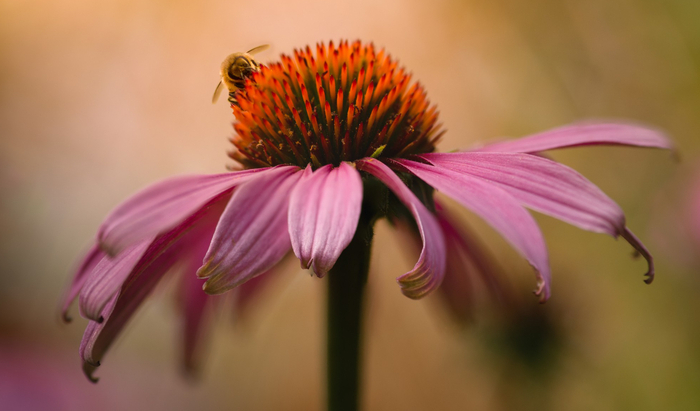Air pollution can erase the scent of flowers, and this also applies to the insects that visit them: in urban areas, where the levels of polluting compounds in the air are higher, pollination can be reduced by up to 70%, because moths, butterflies and bees can no longer perceive the smell.
This was discovered by the study led by the University of Washington and published in the journal Science, which illustrates the impact that pollution caused by human activities could have on a global level, putting at risk a fundamental mechanism such as pollination.
The so-called 'sensory' pollutants include all those factors such as noise caused by man, artificial lights and chemical pollutants, which can modify the behavior of animals by introducing new stimuli or modifying the natural ones used by the sensory systems of organisms.
It is already known that various air pollutants such as ozone, which in the lower layers of the atmosphere is no longer protective but harmful, and the nitrate radical, dangerous during the night hours, degrade the chemical compounds that are the basis of floral perfumes, but very little is still known about how this may affect the habits of pollinating insects.
For this reason, researchers led by Jeremy Chan studied the effects of pollution on the pollination of 'evening primroses', flowers that open only at night, by moths.
Thanks to experiments conducted both in the laboratory and in the field, the authors of the study discovered that in particular the nitrate radical, the dominant compound during the night hours in some more polluted areas, rapidly degrades the aromatic compounds produced by primroses, making them untraceable by of moths.
This resulted in an average drop of 70% in visits made by insects to flowers, thus damaging their ability to reproduce.
Reproduction reserved © Copyright ANSA

